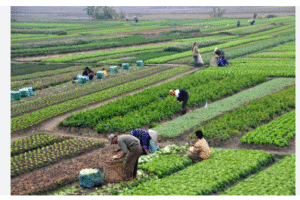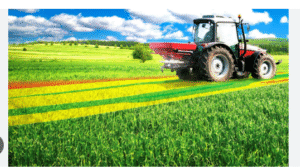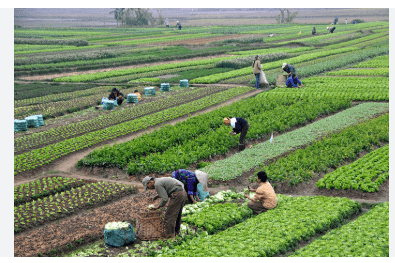Table of Contents
Toggle🌾 Introduction
Agriculture in Bangladesh is more than just an industry — it’s the lifeline of our economy and rural communities. With over 40% of the population engaged in farming and nearly 13% contribution to GDP
, agriculture plays a critical role in food security, employment, and national growth. Thanks to our fertile delta, favorable climate, and centuries-old farming heritage, agriculture in Bangladesh is deeply rooted in our culture and survival.
🌱 Why Agriculture is Vital for Bangladesh
1. Ensures Food Security
Feeding over 170 million people is no small task. Our hardworking farmers ensure our daily supply of rice, vegetables, fish, and meat. Agriculture in Bangladesh forms the foundation of our national food system and a key pillar of stability.
2. Supports Employment
In rural areas, farming is not just a livelihood — it’s life itself. From planting to harvesting, tending livestock to food processing, agriculture in Bangladesh creates millions of jobs across the country.
3. Drives Rural Development
Where agriculture thrives, rural communities prosper. It reduces poverty, improves livelihoods, and brings progress to the doorsteps of villagers.
4. Boosts Exports
Agriculture in Bangladesh also fuels the economy through exports. Products like jute, tea, shrimp, and vegetables earn valuable foreign currency and strengthen our global trade footprint.
🌾 Major Crops of Bangladesh
✅ Rice
Rice is the heartbeat of agriculture in Bangladesh — our staple food and the most cultivated crop. Farmers grow three seasonal varieties: Aus, Aman, and Boro, ensuring year-round production.
✅ Jute
Once known as the “golden fiber,” jute remains a symbol of sustainability and rural pride. Despite declining global demand, this eco-friendly crop still supports thousands of families and promotes green products.
✅ Vegetables & Fruits
Our rich soil allows for the cultivation of diverse vegetables — brinjal, gourds, beans, and leafy greens — and fruits like mango, banana, jackfruit, and papaya, making agriculture in Bangladesh both colorful and nutritious.
✅ Wheat, Maize & Pulses
These crops complement the rice-based diet and are crucial for nutritional balance. They play a key role in food security, especially during off-seasons and climate-related disruptions.
🌧️ Key Challenges in Agriculture
⚠️ Climate Change
Floods, salinity, droughts, and cyclones threaten agriculture in Bangladesh every year. Overdependence on rice increases vulnerability. We must diversify into fruits, livestock, fisheries, and more.
⚠️ Small Land Holdings
Growing population means shrinking farmland. Smaller plots reduce productivity and raise production costs.
⚠️ Lack of Technology
Traditional tools and outdated methods still dominate. Limited access to modern machinery, quality seeds, and training slows progress.
⚠️ Post-Harvest Losses
A significant amount of produce goes to waste due to poor storage, transportation, and handling facilities.
🌿 The Path Toward Sustainable Agriculture
🌟 Embracing Agro-Tech
Modern tools like drones, sensors, and data analytics help monitor crop health, reduce input waste, and increase yields — making agriculture in Bangladesh smarter and more efficient.
🌟 Climate-Resilient & Organic Farming
To combat climate stress, we must grow salt-tolerant and flood-resistant crops while promoting organic practices. These methods protect health and preserve the environment.
🌟 Educating and Empowering Farmers
Workshops, community learning, and technical training can teach better pest control, soil management, and irrigation — transforming agriculture in Bangladesh from traditional to tech-enabled
Increased subsidies, rural credit, and development projects are essential for empowering small farmers.
.
🌟 Government & NGO Support
Financial aid, fair loans, subsidies, and development programs empower small farmers to take risks and grow confidently. Strong partnerships lead to resilient agriculture.


🌟 Inspiring Youth Participation
Bangladesh’s youth can revolutionize farming. With their tech skills and innovative spirit, they can turn agriculture in Bangladesh into a modern, profitable, and respected career path.
✅ Conclusion
Agriculture in Bangladesh is the backbone of the nation — feeding families, fueling the economy, and supporting rural life. As challenges grow, so must our solutions. By embracing innovation, sustainability, and collective effort, we can ensure a future where our farms flourish, our people thrive, and our nation stands tall.
Together — farmers, youth, experts, and leaders — we can shape a resilient and thriving agricultural system for generations to come.
